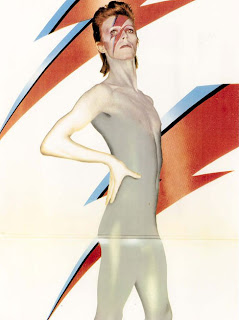With an already established reputation prior, Pink Floyd gave the music scene Dark Side of the Moon, one of the most influential and acclaimed albums of all time. Following the album came the equally well crafted and classic, Wish You Were Here. Wish was another concept album (one of many) by the band. Yet where as many of their concepts dealt with madness, this album revolved around loss and separation. In it they explored the idea of musicians being pulled further away from music itself through production and the music industry itself. The album is also a tribute to Pink Floyd founding member, Syd Barrett. Barrett left the band after their second album, A Saucerful of Secrets, due to his own increasing madness as a result of LSD and other drug use. Barrett would then be replaced by guitarist, David Gilmour, who remained with the band. The album's "bookend" tracks, "Shine on You crazy Diamond," are the ode to Barrett, noted in the title itself with the initials spelling out his first name, Syd: "Shine"-S, "You"-Y, "Diamond"-D. Oddly enough while the band was working on the final production of the album, a man appeared in the studio who was at first unfamiliar to the other members. They soon realized it was Syd Barrett himself, whom neither of them had seen or heard form in years and shows up while they're working on his tribute. The album explores the idea of breaking into the music business, becoming separated from the music, and ultimately being destroyed by the industry (which is also portrayed by the album cover).
Pink Floyd
(From left: Nick Mason, David Gilmour, Roger Waters, Richard Wright)
While recording the album, bassist and lyricist Roger Waters, felt the band was growing further away from the music. They were utilizing more machines and altering the music to where the final cut had little to do with its beginnings. One example is on the track, "Welcome to the Machine," where David Gilmour's vocal work actually had to be enhanced mechanically in order to achieve the right note. An ever more perfect example is on the following track, "Have A Cigar," where the vocals are not done by any of the band at all. Waters' voice was in shreds from working on "Shine on You crazy Diamond" so much, and Gilmour's vocals weren't meeting Waters' expectations. Instead, they went down the hall to another studio and asked friend, Roy Harper (who was also working on an album at the time), if he would lend his vocals to the song. This further advocated the concept of the band getting further from their own music. The album is filled with plenty of sweeping keyboard and synthesizer textures coupled with consistently simple and expert guitar work. The album truly flows as one piece of music with more cohesive transitions than that of Dark Side. Probably the most commonly viewed standout is the title track itself, a simple acoustic number that simultaneously feels separate from the rest of the album yet makes it feel whole. Pink Floyd has provided me with one of the most fulfilling musical journeys, and this album is my personal favorite. This is also Floyd at their best at a time where each member is creatively and actively involved in the construction of the music. As stated by Gilmour and keyboardist, Richard Wright, it was their last truly enjoyable recording before that of Animals and The Wall where Waters increased his hold on the band and assumed all creative control which ultimately led the band's dissipation.
Pink Floyd, early lineup
(From left: Roger Waters, Nick Mason, Syd Barrett, Richard Wright)
Track to check out: Have A Cigar



















